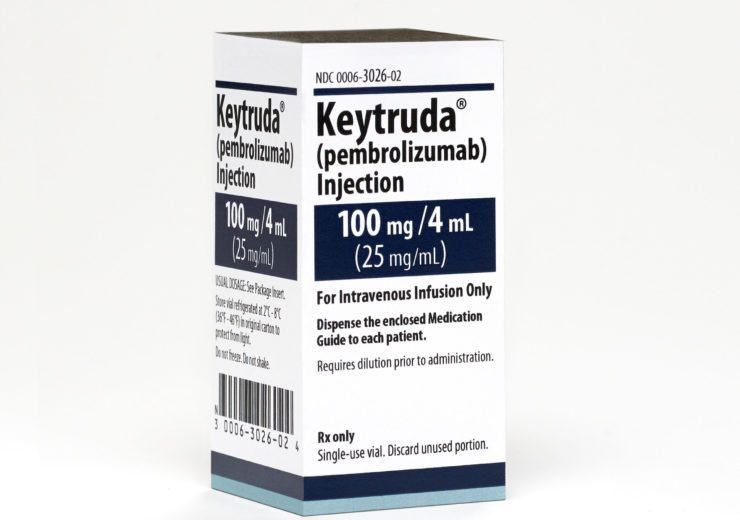KEYTRUDA is an anti PD-1 therapy that works by enhancing the body’s immune system to detect and fight tumour cells

KEYTRUDA approved for squamous cell carcinoma. (Credit: Merck Sharp & Dohme Corp.)
Merck has secured the US Food and Drug Administration (FDA) approval for KEYTRUDA to treat a type of cutaneous squamous cell carcinoma (cSCC).
The US FDA indicated KEYTRUDA as monotherapy for the treatment of patients with recurrent or metastatic cSCC, not curable by surgery or radiation therapy.
KEYTRUDA is a humanised monoclonal antibody that blocks the interaction between PD-1 and its ligands, PD-L1 and PD-L2, to enhance the body’s immune system to detect and fight tumour cells.
Merck Research Laboratories clinical research vice president Jonathan Cheng said: “Cutaneous squamous cell carcinoma is the second most common form of skin cancer. In KEYNOTE-629, treatment with KEYTRUDA resulted in clinically meaningful and durable responses.
“Today’s approval is great news for patients with cSCC and further demonstrates our commitment to bringing new treatment options to patients with advanced, difficult-to-treat cancers.”
The FDA approval of KEYTRUDA is based on Phase 2 KEYNOTE-629 study results
The regulatory approval is supported by the data from Phase 2 KEYNOTE-629 study, a multi-centre, multi-cohort, non-randomised, open-label clinical trial. The study treated105 patients, of which 87% received one or more prior lines of therapy and 74% received prior radiation therapy.
In the KEYNOTE-629 clinical trial, KEYTRUDA has shown meaningful efficacy and durability of response. The drug has demonstrated a 34% objective response rate (ORR), including a 4% complete response rate and a 31% partial response rate.
Based on the study results, KEYTRUDA may induce adverse reactions, including pneumonitis, colitis, hepatitis, endocrinopathies, nephritis and renal dysfunction, skin reactions, solid organ transplant rejection, and complications of allogeneic hematopoietic stem cell transplantation (HSCT).
The drug must be withheld or discontinued based on the severity of the adverse reaction and corticosteroids must be administered if required.
Furthermore, KEYTRUDA may also cause infusion-related reactions and cause foetal harm if administered to a pregnant woman.
